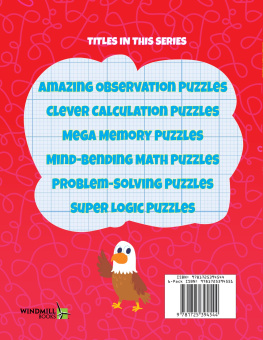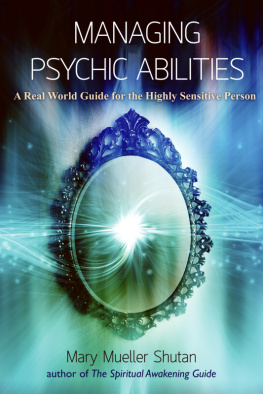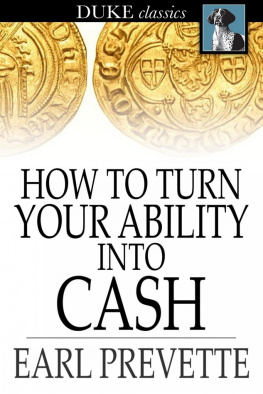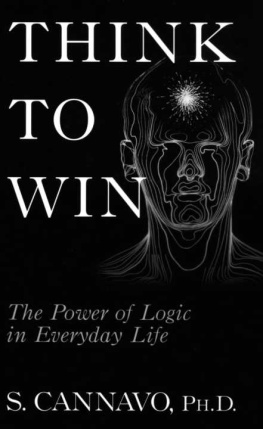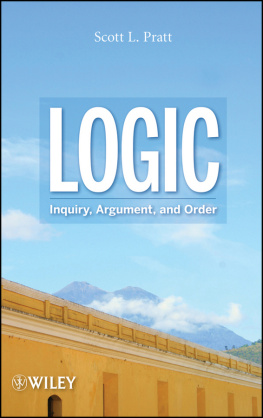The
Logic
of
Insanity
Irrationality comes from trying to be very rational.
And so, if we can understand irrationality,
we can better understand the rational.
Boon H. Teo
To all the giants in the world;
Living or Dead;
Big or Small;
Named or Un-named;
Recognised or Ignored.
Copyright 2019
Boon H. Teo
All rights reserved.
About the book
T here is no shortage of self-help books, or popular science books, or books about logic in general , but probably none like this one. Most books purport to offer some absolute and definitive be all and end all solution to everything to the universe if only you just followed an 8 part process, or complied with some 10 step plan, or adhered to 12 simple rules ...... but that's not really our approach here.
There will always be someone in the world who will think that their way of thought, or their ideas, or processes, or approach, are right, or better, or are smarter than everyone else's; that their way of thinking about the world is objective, and rational, and unique ... and, in that respect, I guess that this book is no exception. After all, that is the point of most books. Otherwise, without that confidence, no book would ever be written and published. But, our aim here is not to seek thebest approach as such, or even necessarily, the most rational or objective way of doing things, but one that seeks to find the one that is the least ignorant.
To be absolutely clear, this is not a book on How to be smart and make perfect decisions all the time, but a book about how not to be completely idiotic. It is not a book written to change the mind of the masses, but to give people a different perspective that challenges their views of what constitutes conventional thought.
The book starts by explaining how the sensation of information is used to form our perceptions of the world around us, and then, goes on to explain how we use the consistency of these perceptions to form the logic of our conscious thoughts. But, from this seemingly simple process, lies a labyrinth of potential inaccuracies, and errors, and biases, and subjectivity, that can affect the mind in various unassuming ways.
From the limitations of our sensation, perception, attention, and memory, to the interaction between our natural emotional responses and our conscious thoughts, to the effects by which the circumstances of our situation might be affecting our motivation to make decisions, to the ingrained notions of social interaction and conformity ...... the human mind is just riddled with irrationality that tend to go unnoticed in the formation of what we think are our objective thoughts. Furthermore, because what each person thinks is idiosyncratic to their own perspective - which is derived from the perception of information from their own personal experiences -, this concept of objectivity, can get even more ..... subjective. Therefore, to truly understand the rationality we call our thoughts involves understanding irrationality, and thinking about how these inaccuracies, and errors, and biases, and so on, might be affecting the logic of our thoughts.
Although prefaced with some basic ideas that are rooted in some form of Science, from such disciplines such as Human Biology, Psychology, and Logical Reasoning, what you're about to read is nothing really scientific per se. It is probably more akin to bro-science or mansplaining than anything else. I am not a Psychologist, nor a Doctor, nor a Logician, nor a Philosopher, or nothing near the sort. I want to make it perfectly clear that I am not actually qualified for any of this. However, while not a Biologist, or Psychologist, or Philosopher, or Logician, or any kind of qualified professional of the sorts, not being an expert in a particular field has its advantages too, in that, we are not limited to any particular interpretation of information or confined to one particular field or discipline. In fact, that is one of the key themes of the book, which is being open-minded to other possible explanations of things being the way that they are.
By being open-minded to other possibilities, we don't limit ourselves to one particular narrative from one particular point of view, and by doing so, we avoid the potential pitfalls and limitations of any one particular singular approach. Furthermore, by being open-minded to different perspectives, we give ourselves the freedom and the choice to use our imagination and creativity, so that we can explore the different ways by which we can interpret information to figure out what our potential options really are, rather than forming formulaic conclusions at the ignorance of everything else that we might not necessarily agree with.
A good idea is a good idea, regardless of who said it or what their qualifications are, and all we really want to do is to be able to recognise that it was a good idea in the first place and not be ignorant to it because it doesn't fit in with our particular discipline, or approach, or theory, or model, or point of view, of how we think the world should be.
What we are ultimately trying to accomplish here is what Einstein called Combinatorial Play, which takes some of the best ideas and concepts from thinking about things in different ways and combining it into a more cohesive argument to give us a more complete understanding of the things we want to understand.
Logical thought is not limited to the realm of professionals, or people with special skills, or qualifications, or abilities, or people with high I.Q.s, etc., but is an idiosyncratic understanding of how we each individually perceive and interpret information to form the logic of the world around us. And, if we can understand how we individually perceive and interpret the logic of the world around us, we can better understand ourselves and utilise our thoughts in a more constructive fashion.
Contents
Table of Contents
Preface
- Start at the Beginning
- A few Possible Things Before Thought
- Which Way to From Here
- Uncommon Nonsense
- Why is a Raven like a Writing desk
- I'm Not Myself you See
- We're All Mad Here
- It's No Use Going Back to Yesterday Because I was a Different Person Then
- Much More Muchier
- The Only Weapon in the War Against Reality
- You're Sure to Get Somewhere, If You Only Walk Long Enough.
- Curiouser and Curiouser
- If I had a World of My Own, Everything Would be Backwards
- Off With Their Heads!
- The Great Puzzle is: Who Are You?
Post Script: All the Best People are
Preface
I don't really know why I am writing this ......
You see, I've always been different from everyone else. It probably started when I was in primary school where I couldn't even speak the language. I grew up speaking English at home, but for some reason, I was sent to school where they taught everything in Mandarin. Needless to say, I was fairly terrible at school - except for English and Maths - and because of the language barrier, I couldn't really communicate with my teachers and peers. But I never really thought much of it. The thing about not being understood is that you eventually learn not to question anything at all and just accept everything the way that it is.
As a result of this, a lot of my youth was spent as a fly on the wall watching the world go by. Naturally, I gravitated towards watching copious amounts of television. Id spend hours every day watching everything and anything from cartoons to movies, to television shows, documentaries, news programs ...... you name it, Id watched it. You learn a lot about people from watching television, or at least the characteristics of people; characters with distinct personalities, interacting in difficult situations, merely a reflection of the extremes of the human condition. To me, television was always more rational than the real world except maybe for the news. There was always some sort of structure to the madness, some sort of logic that held everything together in place. Furthermore, there was always some form of resolution at the end.


